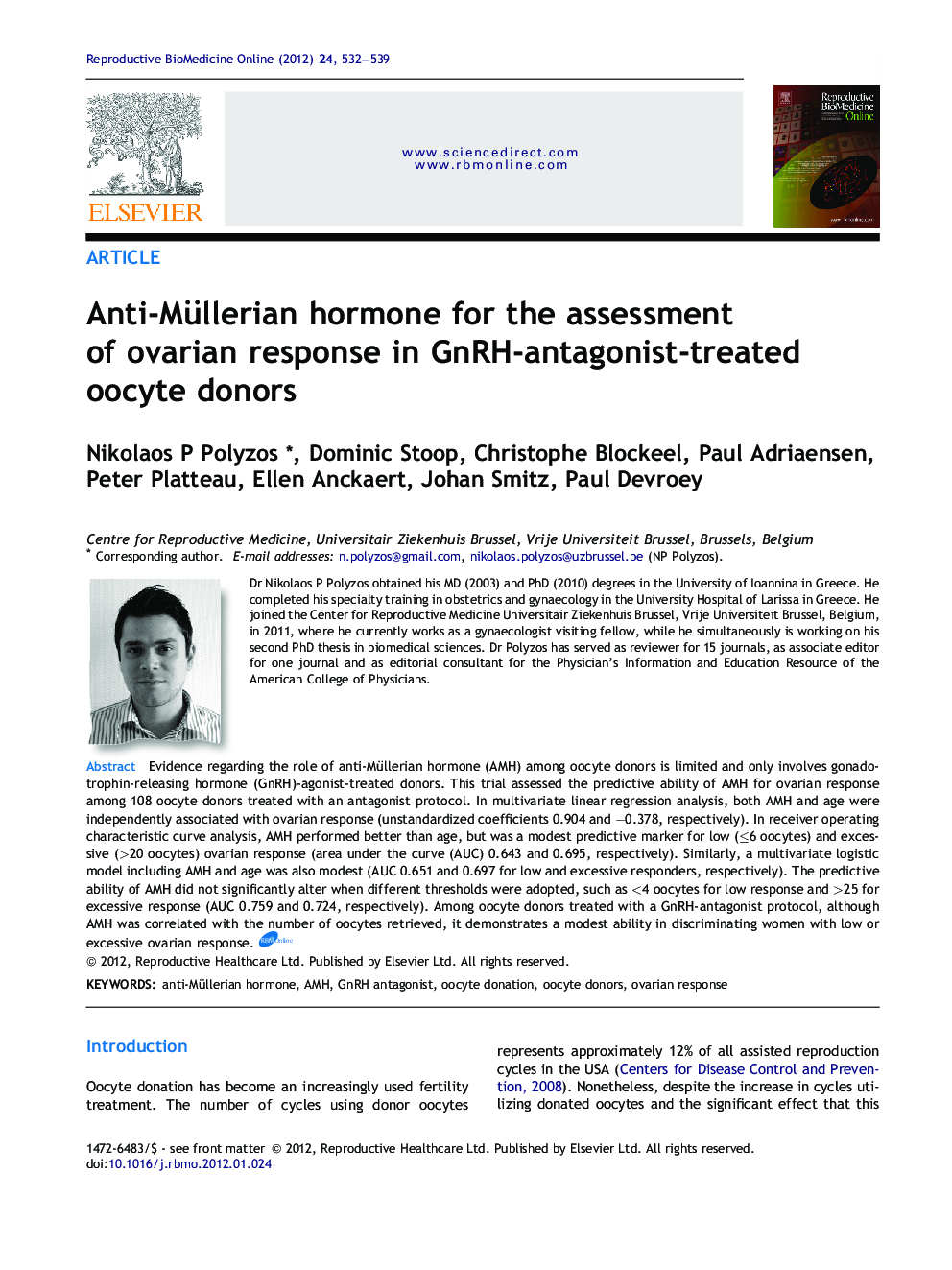| Article ID | Journal | Published Year | Pages | File Type |
|---|---|---|---|---|
| 3970519 | Reproductive BioMedicine Online | 2012 | 8 Pages |
Abstract
Selection of oocyte donors is of paramount importance for the proper and more cost-efficient functionality of the oocyte donation programme. Despite the extensive literature regarding the efficacy of anti-Müllerian hormone (AMH) for predicting ovarian response among infertile patients, available evidence regarding the role of AMH in oocyte donors is considerably limited and involves only agonist down-regulated cycles. In this trial we assessed whether AMH can be considered a predictive marker for ovarian response among oocyte donors treated with a gonadotrophin-releasing hormone (GnRH)-antagonist protocol. According to our results, among oocyte donors treated with a GnRH-antagonist protocol, although AMH was correlated with the number of oocytes retrieved, the correlation is not strong and it appears that AMH has a modest predictive ability to discriminate women who are likely to demonstrate either impaired or excessive response to ovarian stimulation.
Related Topics
Health Sciences
Medicine and Dentistry
Obstetrics, Gynecology and Women's Health
Authors
Nikolaos P. Polyzos, Dominic Stoop, Christophe Blockeel, Paul Adriaensen, Peter Platteau, Ellen Anckaert, Johan Smitz, Paul Devroey,
